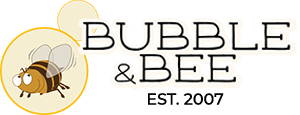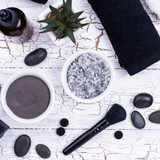Is Sodium Cocoyl Isethionate Safe?

What is sodium cocoyl isethionate?
Sodium cocoyl isethionate is used as a surfactant or co-surfactant (for cleansing properties and lather) in products such as shampoos, shampoo bars, body washes, and hand soaps. It's created by combining sodium isethionate with coconut oil fatty acids. (source)
Is sodium cocoyl isethionate natural?
SCI cannot be considered natural. It is not known to naturally occur in plants, minerals, or animals. While one part of its synthesis does come from coconut oil, the other half is derived from sodium bisulfate and ethylene oxide. (source) Sodium bisulfite is an irritant and mutagen. (Source) Ethylene oxide is a well-known carcinogen. (source)
Is sodium cocoyl isethionate toxic?
The finished and purified product, has not been found to be genotoxic, a reproductive toxin, and is not a known carcinogen. However, it is created with carcinogenic and mutagenic compounds, as noted above. Because it is an ethoxylated chemical (made with ethylene oxide), SCI has the potential to contain traces of ethylene oxide and its carcinogenic by-product 1,4-dioxane.
Is sodium cocoyl isethionate vegan?
SCI is derived from coconut oil and synthetic chemicals; no animal derivatives used.
Is sodium cocoyl isethionate eco-friendly?
SCI is manufactured with ethylene oxide, a carcinogen that can end up in waterways. SCI is also apparently highly toxic to waterways and creates long-term effects in aquatic environments. (source)
Is sodium cocoyl isethionate a skin irritant?
While tolerated better than sodium lauryl sulfate, sodium cocoyl isethionate is a potential skin irritant. (Source)
Bottom line:
While touted as a "safer" or "natural" ingredient, sodium cocoyl isethionate poses the risk of 1,4-dioxane contamination and is toxic to waterways when you wash it down the drain.
Recent Posts
-
Is Charcoal Safe in Deodorant?
Activated charcoal has become a popular natural ingredient in toothpaste, deodorant, soaps, facial c …5th Mar 2024 -
Is Stevia an Endocrine Disruptor?
Is Stevia an Endocrine Disruptor?Stevia rebaudiana, an herb native to Paraguay and Brazil, contains …9th Feb 2024 -
Is Aloe Vera Toxic?
Containing more than 200 different chemical compounds, aloe vera plants and extracts have long been …9th Feb 2024

